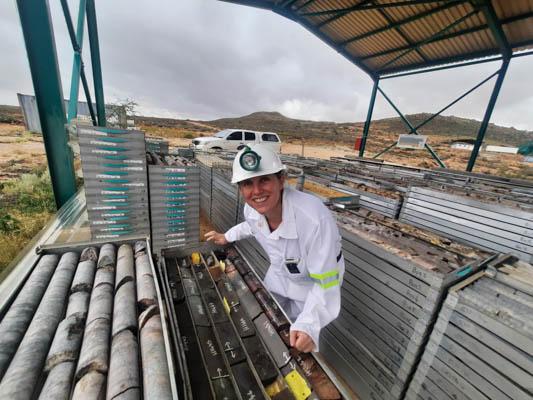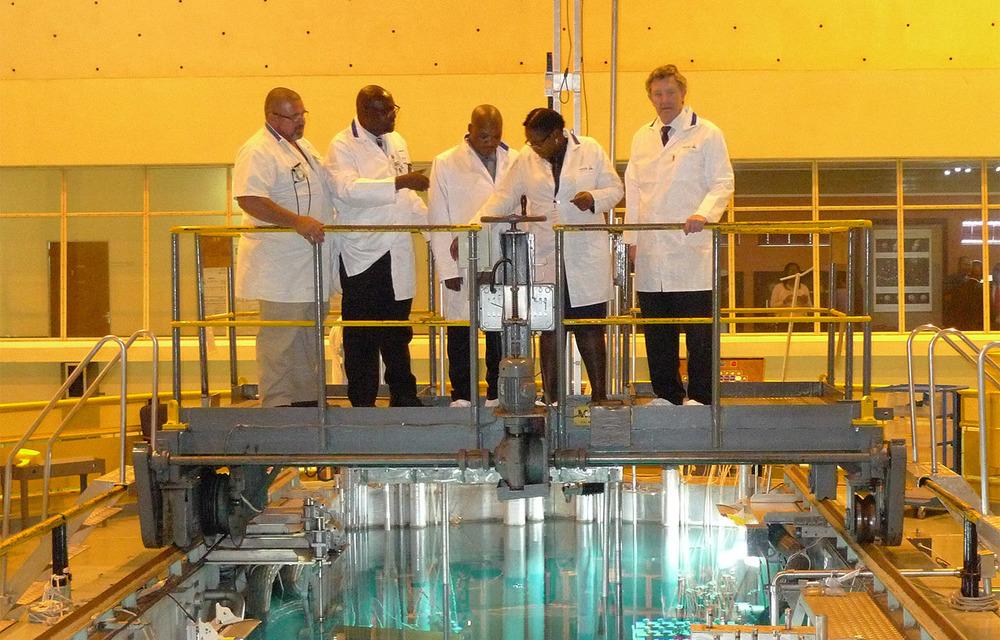Explore Our Bill Payment Services:

- Salary And Allowance
- Engineers Salary
- South Africa
Salary And Allowance Structure For Geological Engineering In South Africa
Geological engineering sits at the exciting intersection of engineering and earth sciences. In South Africa—a country blessed with immense natural resources and dynamic geological formations—this profession plays a crucial role in shaping infrastructure, mining projects, water management, and environmental protection. Geological engineers combine their technical expertise with geological knowledge to ensure structures are safe, resources are sustainably harnessed, and risks are effectively managed.
One of the most compelling aspects of this career, apart from its intellectual rewards, is its financial potential. Salaries for geological engineers vary significantly based on factors like experience, education, specialization, sector of employment, and location. In addition to base salaries, professionals in this field often benefit from a range of allowances and perks that further enrich their compensation packages.
This article explores the salary and allowance structure of geological engineering in South Africa, unpacking how pay evolves across different stages of a career and the various factors that influence earnings.
Entry-Level Salaries (0–2 Years)
Every career has a starting point, and for geological engineers, the journey begins with modest but respectable pay.
Fresh graduates can expect an annual salary of around ZAR 214,000, which works out to approximately ZAR 17,900 per month. Depending on the employer and the scope of work, some entry-level positions range higher—between ZAR 250,000 and ZAR 400,000 annually, translating to ZAR 20,000–33,000 monthly.
A significant factor here is the nature of assignments. Many junior engineers spend a lot of time in the field, which often includes allowances for travel, accommodation, and subsistence. While the base salary might not appear overwhelming, these allowances can meaningfully boost the take-home pay, especially when field assignments are frequent.
In short, while entry-level geological engineers may not be earning luxury salaries yet, they are placed on a steady upward trajectory with room for growth.
Mid-Level Positions (2–10 Years)
The first few years of experience dramatically improve a geological engineer’s financial outlook.
-
2–5 years of experience: Professionals typically earn about ZAR 275,000 annually, or ZAR 23,000 per month.
-
5–10 years of experience: Salaries increase substantially to around ZAR 381,000 annually, or about ZAR 31,700 monthly.
In practice, these numbers can be even higher, depending on the industry. In roles overlapping with general geology, for example, salaries may reach:
-
Around ZAR 42,000 per month for those with 2–5 years of experience.
-
Up to ZAR 57,900 per month for those in the 5–10 year range.
This phase of a geological engineer’s career often involves more responsibility, such as leading small teams, supervising projects, and contributing to strategic decisions. With these increased responsibilities come better pay, and in many cases, performance bonuses tied to project outcomes.
Senior-Level and Specialized Experts (10+ Years)
Experience is golden in geological engineering, and seasoned professionals command salaries that reflect both their expertise and leadership roles.
-
10–15 years: Salaries average about ZAR 472,000 per year, or ZAR 39,000 monthly.
-
15–20 years: Earnings rise to around ZAR 504,000 annually, or roughly ZAR 42,000 monthly.
-
20+ years: Salaries can reach ZAR 540,000 annually, translating to about ZAR 45,000 monthly.
For engineering geologists or specialists in high-demand sectors such as mining or oil and gas, these figures can be much higher. For instance:
-
Professionals with 5–10 years’ experience may earn ZAR 639,000 annually.
-
Those with 20+ years under their belt can make close to ZAR 889,000 per year, which works out to ZAR 74,000 monthly.
At this stage, geological engineers often hold senior management positions, head departments, or serve as consultants with specialized expertise. Their salaries not only reflect their years of service but also their value in shaping multimillion-rand projects.
Employer-Specific Insights
Not all employers are created equal. Geological engineers employed in research and public institutions, for example, often earn less than their private-sector counterparts.
Take the Council for Scientific and Industrial Research (CSIR), one of South Africa’s leading public research agencies. Geological engineers here typically earn between ZAR 165,000 and ZAR 177,000 annually, with the highest reported packages around ZAR 229,000.
While these salaries may be lower than what’s offered in mining or oil companies, they come with job stability, predictable work hours, and opportunities to contribute to national development through research.
The Role of Education and Specialization
Education is a game-changer in geological engineering.
-
A bachelor’s degree holder typically earns around ZAR 267,000 annually.
-
A master’s degree boosts this figure to about ZAR 431,000 annually—almost 60% more.
Specialization further elevates earning potential. Professionals who focus on high-demand niches can earn salaries that rival or surpass senior-level generalists. For instance:
-
Mining geology: ZAR 700,000–2,000,000 per year
-
Petroleum geology: ZAR 800,000–2,500,000 per year
-
Hydrogeology: ZAR 600,000–1,500,000 per year
-
Geotechnical engineering: Up to ZAR 1,800,000 per year
The takeaway? Investing in advanced degrees and honing specialized skills pays off handsomely in the long run.
Additional Allowances and Perks
Geological engineers often enjoy a package that extends well beyond their basic salaries. Some of the most common allowances and perks include:
-
Field Allowances: Covering travel, accommodation, meals, and other costs during fieldwork. These can add a substantial amount to monthly earnings.
-
Medical Aid: Health insurance packages are common, especially in larger companies.
-
Retirement Contributions: Pension or provident funds that secure financial stability post-retirement.
-
Professional Development: Funding for workshops, certifications, and continuing education.
-
Bonuses and Profit Sharing: Particularly common in the mining and energy sectors, where performance-based incentives can significantly raise annual income.
These benefits not only improve financial wellbeing but also enhance job satisfaction, making geological engineering a rewarding profession beyond the paychecks.
Influencing Factors in Salary Variation
Several variables affect how much a geological engineer earns:
-
Industry: Mining, oil and gas, and consultancy firms generally pay more than academia or government roles.
-
Location: Working in resource-rich provinces like Mpumalanga, the Northern Cape, or Gauteng often means higher pay compared to smaller towns.
-
Economic Cycles: Salaries rise and fall with commodity prices, exploration activity, and global demand for minerals.
-
Employer Size: Large multinational corporations usually provide higher salaries and better allowances compared to small local firms.
Sampling Salary Tiers
To summarize, here’s an overview of monthly salary ranges at different career stages:
| Career Stage | Monthly Base Estimate | Typical Perks & Context |
|---|---|---|
| Entry-level (0–2 yrs) | ZAR 17K–33K | Field allowances, basic benefits |
| Mid-level (5–10 yrs) | ZAR 32K–57K | Project leadership, performance bonuses |
| Senior (10–20 yrs) | ZAR 42K–75K | Specialized roles, substantial incentives |
| Specialized Experts | Up to ZAR 150K+ | Petroleum, mining, or hydrogeology expertise |
| Public Sector (e.g., CSIR) | ZAR 13K–19K | Job stability, research opportunities |
Future Outlook
The future looks bright for geological engineers in South Africa. Growing demand for natural resources, combined with infrastructure expansion and environmental awareness, ensures this field remains highly relevant. Key growth areas include:
-
Mineral and rare-earth exploration to fuel technology industries.
-
Water resource management, especially hydrogeology, to combat water scarcity.
-
Geotechnical engineering for stable infrastructure development.
-
Renewable energy projects, such as wind and solar site assessments.
-
Environmental rehabilitation, ensuring mining and construction activities are sustainable.
Professionals who continuously upskill, specialize, and register with professional bodies like the South African Council for Natural Scientific Professions (SACNASP) are best placed to secure the highest salaries and long-term success.
Final Thoughts
Geological engineering is both intellectually stimulating and financially rewarding. While entry-level salaries may appear modest, they grow significantly with experience, education, and specialization. Mid-career professionals enjoy stable, competitive pay, while senior experts and specialists can command six-figure monthly packages, especially when allowances and bonuses are factored in.
If you’re considering a career in this field, invest in higher education, aim for niche expertise, and stay attuned to industry trends. The rewards—both financial and professional—are worth the effort.









